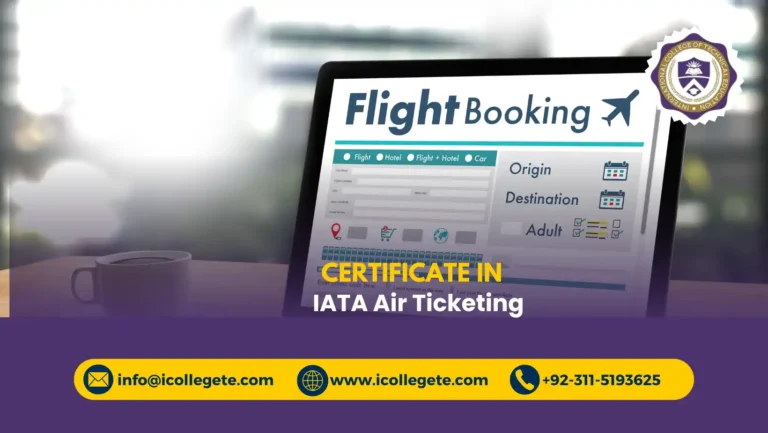Human Resource Management (HRM) plays a crucial role in the success of organizations across the world. By managing talent, fostering employee development, and ensuring a productive work environment, HR professionals contribute significantly to organizational growth. The HRM (Human Resource Management) course in Rawalpindi is designed to equip individuals with the skills and knowledge needed to excel in this critical field.
The HRM (Human Resource Management) course in Rawalpindi provides an in-depth understanding of the principles, practices, and strategies involved in managing human resources effectively. This course is ideal for individuals interested in pursuing a career in HR or those already working in HR roles who wish to enhance their knowledge and expertise. Through a combination of theoretical knowledge and practical skills, students will gain the tools necessary to manage a workforce and contribute to an organization’s success.
The HRM course covers various essential topics related to managing an organization’s workforce. From recruitment and training to performance management and employee relations, this course prepares students to handle the diverse aspects of human resource management. Students will learn how to effectively manage talent, implement HR policies, and create a positive work culture that drives employee satisfaction and productivity.
The course is designed to provide a solid foundation in HRM while also delving into specialized areas such as labor laws, conflict resolution, compensation, and strategic HR planning. The aim is to develop well-rounded HR professionals capable of handling complex organizational challenges.
Study Units
The HRM course typically includes the following modules:
- Introduction to Human Resource Management: Overview of HRM functions and the role of HR in organizational success.
- Recruitment and Selection: Methods and strategies for attracting, selecting, and onboarding employees.
- Training and Development: Approaches to employee training, development programs, and career progression.
- Employee Performance Management: Tools and techniques for evaluating and enhancing employee performance.
- Compensation and Benefits: Designing effective compensation packages and managing employee benefits.
- Labor Laws and Employee Rights: An introduction to labor laws, employee rights, and compliance with regulations.
- Employee Relations and Conflict Resolution: Building and maintaining healthy employee relations, resolving conflicts, and managing disputes.
- Strategic Human Resource Management: Aligning HR practices with organizational goals and strategies.
- HR Analytics: Using data and analytics to make informed HR decisions.
- Ethical and Legal Considerations in HRM: Understanding ethical issues and legal aspects of human resource management.
Learning Outcomes
Upon completion of the course, students will be able to:
- Understand the key functions of Human Resource Management and its strategic importance to an organization.
- Implement effective recruitment and selection processes that align with organizational needs.
- Develop and manage employee training and development programs to enhance skills and career growth.
- Create performance management systems to assess, motivate, and improve employee performance.
- Design compensation structures and benefit programs that attract and retain top talent.
- Navigate labor laws, workplace regulations, and compliance issues effectively.
- Manage employee relations, resolve conflicts, and promote a positive work environment.
- Align HR strategies with organizational objectives to drive overall business success.
- Utilize HR data and analytics to make informed decisions and improve HR practices.
Course Benefits
- Comprehensive HR Knowledge: Gain a deep understanding of all facets of human resource management, from recruitment to employee relations.
- Career Advancement: HR professionals are in demand across industries, and this course can help you unlock a wide range of job opportunities in HR roles.
- Practical Skills: Learn how to implement HR practices and strategies effectively within an organization.
- Industry-Relevant Knowledge: Stay updated on the latest trends and best practices in HRM, including legal and ethical considerations, HR analytics, and talent management.
- Improved Employability: With the certification and skills gained from this course, you’ll be well-positioned for career growth in HRM.
- Networking Opportunities: The course offers valuable networking opportunities with peers and industry professionals, which can be beneficial for future career prospects.
Who Is This Course For?
The HRM course is ideal for:
- Aspiring HR professionals: Individuals looking to start their career in human resource management.
- Current HR professionals: Those already working in HR who want to update their skills and knowledge to meet evolving industry needs.
- Business Managers: Managers who oversee people management functions and want to better understand HR processes and strategies.
- Entrepreneurs and business owners: Those looking to establish or improve HR practices in their organizations.
- Graduates: Individuals looking to build a solid foundation in HRM and pursue a career in this field.
Future Progression
After completing the HRM course, students can explore several avenues for further professional development, including:
- Advanced HR Certifications: Specialize in specific HR functions such as compensation, training, or employee relations.
- Postgraduate Studies: Pursue a Master’s degree in Human Resource Management or related fields for deeper knowledge and advanced career opportunities.
- HR Consultancy: With experience, you may choose to become an HR consultant, providing expertise to businesses on optimizing their HR functions.
- Leadership Roles: Progress into leadership positions like HR Manager, HR Director, or Chief Human Resource Officer (CHRO) within an organization.
- HR Analytics and Technology: With the rise of data-driven HR practices, you can explore roles focusing on HR analytics, workforce planning, or HR software management.
Moreover, HR professionals can also pursue certifications in related fields like labor law, organizational development, or employee engagement to further expand their expertise and career prospects.
The HRM Human Resource Management course in Rawalpindi provides a strong foundation for anyone looking to pursue a career in HR or those who want to enhance their existing HR knowledge. With businesses increasingly relying on HR professionals to help drive organizational success, this course equips students with the essential skills to manage talent, develop workplace strategies, and create a positive organizational culture.
Whether you are new to the field or have some experience, this course provides you with the tools you need to succeed in the ever-evolving world of human resource management.






